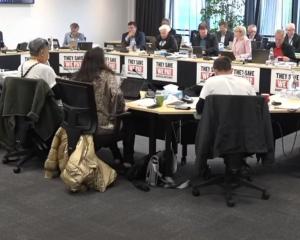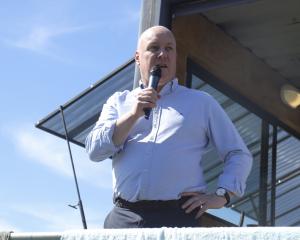
The saga of the University of Otago’s redundancies rolls on, and staff are becoming increasingly demoralised. The reasons are not hard to find. A lack of direction from the leadership; a lack of openness about the many factors responsible for the financial problems and a lack of opportunities to contribute in a serious way to decision-making.
In thinking about these issues, I wondered whether we could learn from an area well known to academics, namely, the emergence of problems with scientific data. Recently, I was struck by the manner in which a successful scientist, Kate Laskowski, responded to the realisation that a number of her published papers had errors in them. These were not her errors, but those of her collaborator. Once she realised she could no longer trust the data in the papers, she did what she considered the only correct course of action. She retracted them. Retractions are admissions of failure, and Laskowski had no compunction in being open and letting others know they could not trust the integrity of papers with her name on them. As far as she was concerned, they had to be removed from the scientific record.
I have referred to this account because of the exemplary and difficult response of Kate Laskowski to a devastating episode in her career. Rather than trying to sweep it under the carpet and hope for the best, she took the high ground, admitted what had gone wrong, and was prepared to live with the consequences.
Her openness is striking as is her honesty and commitment to the trust that lies at the basis of science. In the university’s case, something has also gone wrong, but there has been a lack of openness about the myriad factors behind it, and the result has been a loss of trust in the leadership of the university.
The Laskowski episode is a model of how to respond when some exceedingly troubling event has occurred. Admit the errors or poor judgement, be open and brutally honest about one’s own inadequacies, and support those affected in practical ways. Treat staff in such a way that they feel valued rather than dispensable commodities. Ask for input from them on the best ways forward, and show them that these will be taken seriously in decision-making, and that they are trusted and worthwhile members of the university community.
Tragically, there is little sign that any of this is happening in the university at present. I have looked hard to see to what extent university leaders are following the university’s own stated core values. These are respect, integrity, curiosity, and community. These were formulated after extensive discussion in 2019 and 2020, but they appear to have fallen on hard times.
These values are to steer relationships between staff and staff and students, and could have been of great value in guiding the way in which redundancies are carried out. But they have been absent so far.
There is hope but it lies in building trust across the whole institution and working with academic staff rather than against them. The future will only flourish with the input of academic staff in envisioning what the university will look like. Minimally it must commit to being a strong research and teaching institution with clear scholarly priorities, welcoming new initiatives, and a relatively flat management structure. Interdisciplinary approaches are to be encouraged, and risks have to be taken. The number of management layers must be decreased substantially. This will send the message to academic staff that they are respected and trusted.
The way any current redundancies are carried out will show very clearly what sort of university the leadership wants. But why are the views and ideas of the majority of academic staff not being solicited? Is academic freedom being stifled, and if so why? These questions can only be answered by full and open debate across the university. The example of Kate Laskowski, and of many other academics in their scholarly endeavours, cannot be overlooked.
What is done now will determine the sort of Vice-Chancellor the university will or will not be able to attract. And that will determine the character of the university for many years into the future.
— Gareth Jones is Emeritus Professor of Anatomy, University of Otago.










